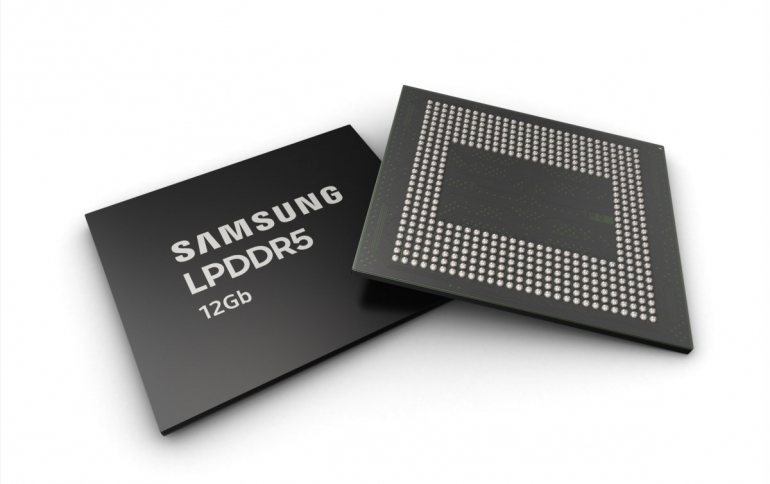
Samsung Begins Mass Production of 12Gb LPDDR5 Mobile DRAM for Smartphones
Samsung Electronics has begun mass producing the industry’s first 12-gigabit (Gb) LPDDR5 mobile DRAM, which has been optimized for enabling 5G and AI features in future smartphones.
The new mobile memory comes five months after announcing mass production of the 12GB LPDDR4X, further reinforcing the company’s premium memory lineup. Samsung also plans to start mass producing 12-gigabyte (GB) LPDDR5 packages later this month, each combining eight of the 12Gb chips, in line with growing demand for higher smartphone performance and capacity.
“With mass production of the 12Gb LPDDR5 built on Samsung’s latest second-generation 10-nanometer (nm) class process, we are thrilled to be supporting the timely launch of 5G flagship smartphones for our customers worldwide,” said Jung-bae Lee, executive vice president of DRAM Product & Technology, Samsung Electronics. “Samsung remains committed to rapidly introducing next-generation mobile memory technologies that deliver greater performance and higher capacity, as we continue to aggressively drive growth of the premium memory market.”
At a data rate of 5,500 megabits per second (Mb/s), the 12Gb LPDDR5 is approximately 1.3 times faster than previous mobile memory (LPDDR4X, 4266Mb/s) that is found in today’s high-end smartphones. When made into a 12GB package, the LPDDR5 is able to transfer 44GB of data, or about 12 full-HD (3.7GB-sized) movies, in only a second. Built on Samsung’s latest second-generation 10-nanometer (nm) class process, the new chip also uses up to 30 percent less power than its predecessor by integrating a new circuit design with enhanced clocking, training and low-power feature that ensures stable performance even when operating at a fast speed.
Samsung is considering transferring its 12Gb LPDDR5 production to its Pyeongtaek (Korea) campus starting next year, depending on demand from its global customers. Following its introduction of the 12Gb LPDDR5 mobile DRAM, Samsung expects to also develop a 16Gb LPDDR5 next year.





















